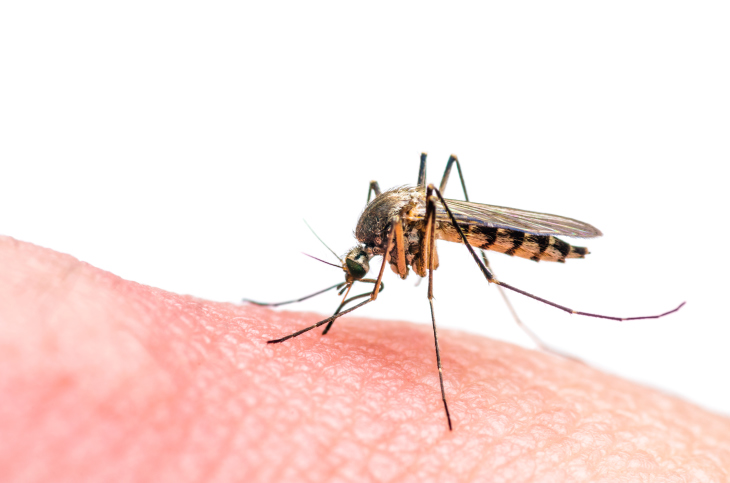Typically, mosquitoes are nothing more than a nuisance, inviting themselves to your summer outings and leaving you with bites that itch for days. However, these annoying insects also have the potential to make you very sick, because mosquitoes may carry diseases like the Zika virus that they can pass onto you through their bites.
While the cases of Zika reported in the U.S. so far were acquired through travel to Zika-affected areas, the number of cases will likely increase in the coming months, which could result in the local spread of the virus in some areas of the country. While most people never show any symptoms, others may develop fever, rash, joint pain, headache, muscle pain and conjunctivitis (red eyes). For more information on symptoms of the Zika virus, visit the Centers for Disease Control and Prevention’s website.
The best way to protect yourself and your loved ones is by avoiding mosquito bites. Below are a few tips and recommendations to help prevent bites and avoid contracting Zika virus:
Be Aware
The Zika virus has been shown to cause microcephaly, a serious birth defect, and poor pregnancy outcomes in women who have been infected through mosquito bites. As such, the CDC recommends that pregnant women should not travel to Zika-affected areas. Further, because the Zika virus can be spread by men who live in or have traveled to Zika-affected areas to their partners during sex, it’s important that couples expecting or thinking about having a baby be cautious and talk to their healthcare provider in order to prevent transmission of the Zika virus. For more information specifically for women who are pregnant or thinking about pregnancy, the CDC has more information here.
If you have traveled to a Zika-affected area, be on alert for any symptoms as they could develop up to two weeks after being bitten by an infected mosquito. If you believe you may have contracted Zika, contact your healthcare provider.
Be Prepared
Although the Zika virus has not yet been transmitted within the U.S., it is possible this could change in the coming months. It is critical to take steps to prevent bites from mosquitoes that may carry the disease. Here are a few tips to consider:
- Unlike other mosquitoes, those carrying the Zika virus are most active during the daytime, so it is important to take precaution at all times.
- When working or spending time outdoors (especially during the hours when mosquitoes are typically biting), try wearing long sleeves, pants and socks to reduce your risk of being bitten.
- When indoors, use air conditioning and/or window and door screens to prevent mosquitoes from coming inside.
- Use bug spray on any exposed skin and on your clothing to make yourself less attractive to mosquitoes. To find the best repellent for you, check out this toolfrom the Environmental Protection Agency (EPA) to search registered repellents. The EPA and CDC recommend repellents that list any of the following as active ingredients – DEET, picaridin, IR3535 or plant-based oil of lemon eucalyptus. For additional information on recommended repellents, visit the CDC’s website.
- Use citronella candles to help repel mosquitoes and other bugs.
Oftentimes, your county or city government’s health department will have a program to help control the local mosquito population and reduce your risk of contracting diseases like the Zika virus. Reach out to your local government to find out more about how mosquitoes are being controlled in your area.
For Health Advocate Members
If you’re a Health Advocate member and have more questions about risks and symptoms of the Zika virus, contact your Personal Health Advocate to find a physician in your area who can help you learn more.



